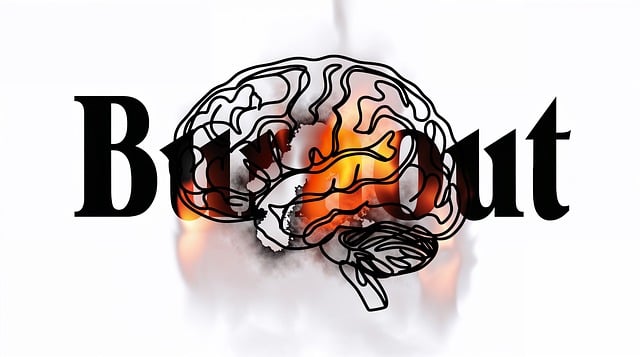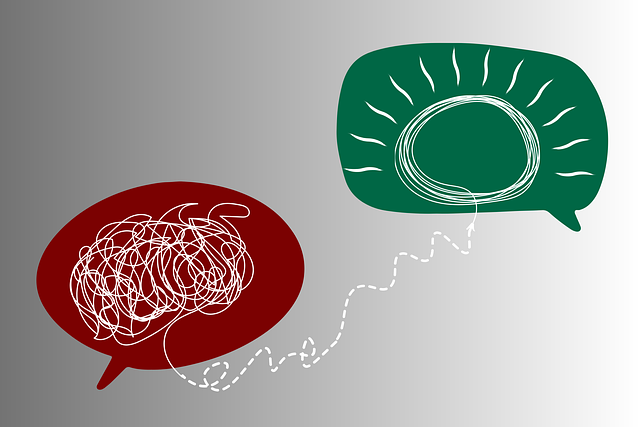Greenwood Village Mandarin Chinese Speaking Therapy prioritizes creating safe, culturally sensitive spaces for effective mental wellness groups. Facilitators, skilled in both mental health support and cultural competency, address unique challenges faced by Mandarin-speaking individuals through language accessibility and tailored activities. By fostering open communication, active listening, and peer support, these sessions empower participants to build resilience, share experiences, and overcome barriers, leveraging mindfulness practices for burnout prevention and emotional well-being.
Mental wellness group facilitation is a powerful tool, especially in diverse communities like Greenwood Village. This article explores effective techniques for facilitators leading therapy sessions with Mandarin-speaking participants. We delve into creating safe spaces, understanding cultural nuances, and engaging members actively. By incorporating tailored strategies, facilitators can build trust and encourage open dialogue, fostering a supportive environment akin to the vibrant tapestry of Greenwood Village’s Mandarin-speaking community.
- Understanding Mental Wellness Group Dynamics: Creating a Safe Space
- The Role of a Facilitator: Navigating Greenwood Village Mandarin Chinese Speaking Therapy Sessions
- Engaging Participants: Strategies for Active Involvement
- Incorporating Cultural Sensitivity: Tailoring Techniques for Mandarin-Speaking Communities
- Effective Communication: Building Trust and Encouraging Open Dialogue
Understanding Mental Wellness Group Dynamics: Creating a Safe Space

Creating a safe and supportive environment is paramount when facilitating mental wellness groups, especially in diverse settings like Greenwood Village Mandarin Chinese Speaking Therapy. Understanding group dynamics involves recognizing that each individual brings unique experiences and perspectives, which can enrich discussions but also present challenges. Facilitators must foster an atmosphere of acceptance and non-judgement to encourage open communication. This involves active listening, validating participants’ feelings, and ensuring confidentiality to build trust.
In designing mental health education programs, facilitators should incorporate strategies that promote risk management and burnout prevention for both the participants and themselves, as seen in effective Risk Management Planning for Mental Health Professionals. By creating a safe space, facilitators enable individuals to explore their mental wellness journeys, share experiences, and learn from one another, ultimately enhancing the overall effectiveness of these therapeutic groups.
The Role of a Facilitator: Navigating Greenwood Village Mandarin Chinese Speaking Therapy Sessions

In Greenwood Village Mandarin Chinese Speaking Therapy sessions, the role of a facilitator goes beyond traditional therapy leadership. They act as cultural bridges, ensuring effective communication and understanding within a diverse group. Facilitators skilled in both mental health support and cultural competency training play a pivotal role in creating an inclusive environment for participants from various backgrounds. By integrating language accessibility and cultural sensitivity, these sessions cater to the unique needs of Mandarin-speaking individuals seeking therapy.
This tailored approach not only enhances depression prevention efforts but also contributes to public awareness campaigns development. Facilitators guide discussions, encourage open sharing, and facilitate activities that address mental wellness challenges specific to this demographic. Their expertise enables participants to navigate complex cultural and linguistic barriers, fostering a supportive space where everyone feels empowered to express their experiences and seek help.
Engaging Participants: Strategies for Active Involvement

Engaging participants actively is key to facilitating effective mental wellness groups at Greenwood Village Mandarin Chinese Speaking Therapy. This involves employing strategies that foster open communication and create a supportive environment. One powerful technique is incorporating interactive activities tailored to stimulate discussion and encourage participants to share their experiences. For instance, group exercises focused on problem-solving or role-playing scenarios can help individuals practice coping skills development in a safe setting.
Additionally, facilitators should promote active listening and mutual support among members. Encouraging participants to offer feedback, share personal stories, and provide peer counseling strengthens social skills training and fosters a sense of belonging. By combining these approaches, the group dynamic becomes more engaging, allowing individuals to tap into their inner strength development and build resilience together.
Incorporating Cultural Sensitivity: Tailoring Techniques for Mandarin-Speaking Communities

In facilitating mental wellness groups for Mandarin-speaking communities in Greenwood Village, understanding cultural sensitivity is paramount. Many participants may face unique challenges due to language barriers and differing cultural norms regarding emotional expression and support systems. Therefore, group facilitators must adapt their techniques accordingly. Tailoring activities and discussions to resonate with these individuals’ experiences can foster a sense of belonging and encourage open communication.
For instance, incorporating culturally relevant exercises that focus on building resilience and self-esteem, such as mindfulness practices or positive affirmations, can be highly effective. By providing safe spaces for participants to share their stories in their native language, facilitators enable them to build confidence while improving their mental wellness. This inclusive approach not only respects cultural differences but also strengthens the therapeutic bond among group members.
Effective Communication: Building Trust and Encouraging Open Dialogue

Effective communication is a cornerstone of successful group facilitation, especially when working with diverse communities like Greenwood Village Mandarin Chinese Speaking Therapy. Building trust among participants, many of whom may be navigating sensitive mental health topics for the first time, requires open and respectful dialogue. Facilitators should model active listening by paraphrasing concerns, validating emotions, and ensuring every voice is heard without judgment. This environment encourages members to share their experiences honestly, fostering a sense of belonging and solidarity.
Leveraging Mind Over Matter principles, facilitators can guide discussions on burnout prevention strategies for healthcare providers, an issue prevalent among many participants due to the demanding nature of the healthcare profession. Incorporating mindfulness meditation techniques during sessions not only promotes relaxation but also enhances focus and emotional regulation, empowering group members to tackle challenges with renewed clarity and resilience.
Mental wellness group facilitation is a powerful tool, especially within communities like Greenwood Village’s Mandarin Chinese speaking population. By understanding group dynamics, facilitators can create safe spaces that encourage open dialogue and active participation. Incorporating cultural sensitivity ensures that tailored techniques resonate with diverse backgrounds, fostering trust and meaningful connections. These strategies, as exemplified by the unique Mandarin Chinese speaking therapy sessions, hold the key to enhancing mental wellness support for all individuals within our diverse communities.














